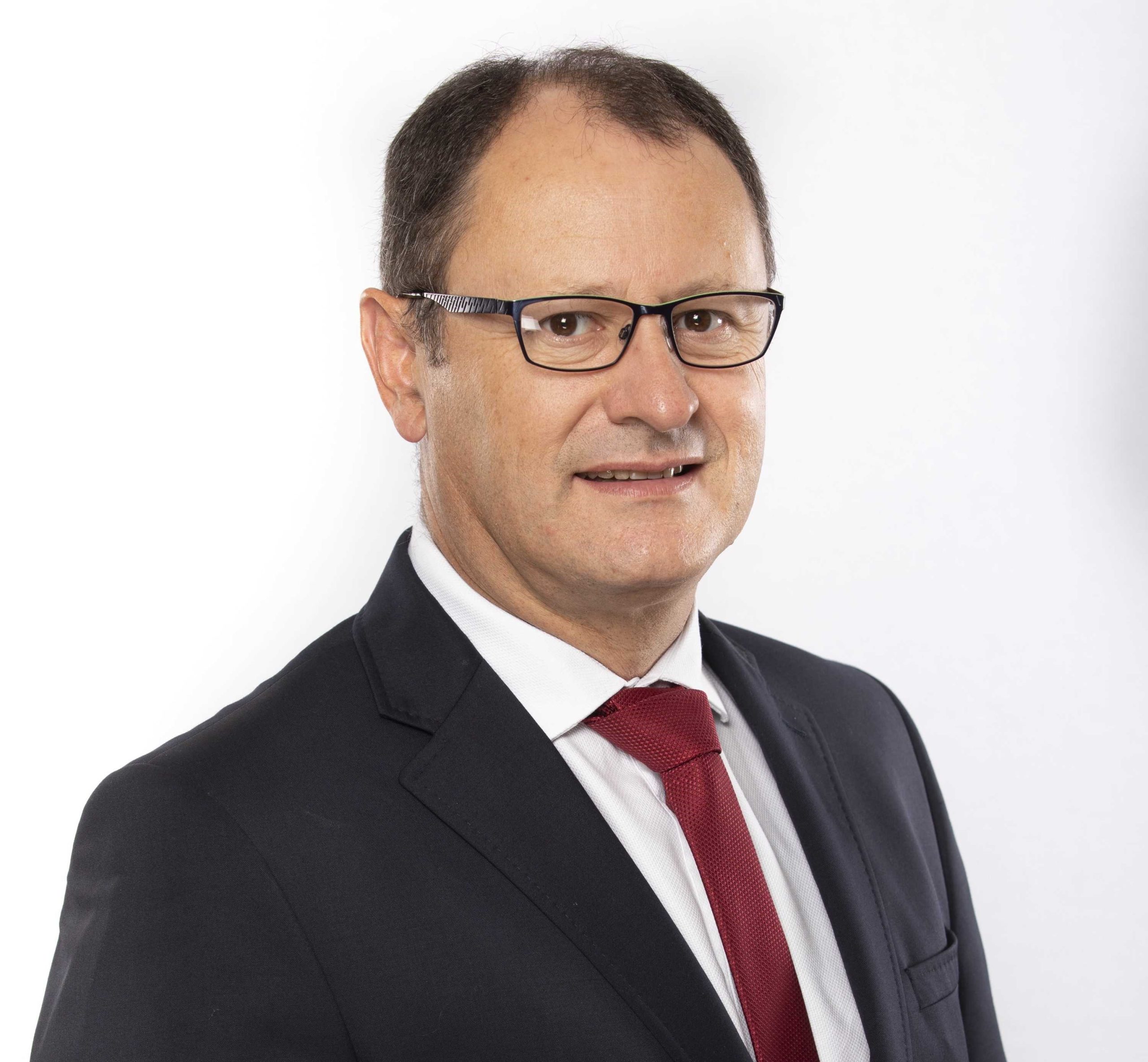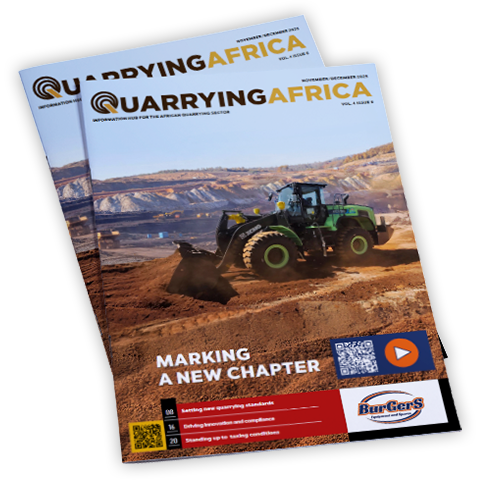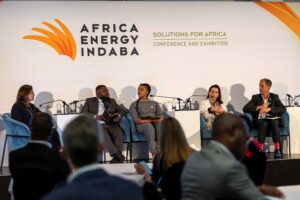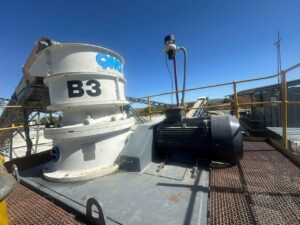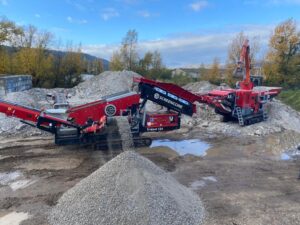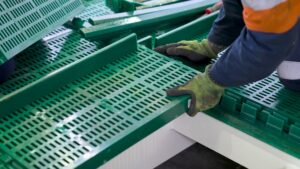Afrimat has released results for the six months ending 31 August 2024, with group revenue increasing by 44,3% from R2,8 billion to R4,1 billion, including the Lafarge business. Group CEO Andries van Heerden says the company is bolstering its long-term growth strategy by expanding a well-chosen asset base in the mining, quarrying and related industries with the integration of the newly acquired Lafarge South Africa. These assets have already delivered a solid performance from the aggregate quarries and ash business leading to an overall improvement in the results of the Construction Materials (Aggregates) segment.
Van Heerden states that group revenue increased by 44,3% from R2,8 billion to R4,1 billion, including the Lafarge business. Operating profit (excluding a gain on bargain purchase) decreased by 45,2% from R534,1 million to R292,7 million. Notwithstanding a good performance from the group’s quarries and the Industrial Minerals division, the reduction in operating profit was primarily due to losses made in the neglected cement division of Lafarge and drastically reduced iron ore sales because of the unexpected freeze of two furnaces at ArcelorMittal.
Afrimat also felt the brunt of a declining export iron ore price, a strengthening Rand and continued limitations on the export rail line. This culminated in headline earnings per share reducing from 263,4 cents to 53,0 cents.
As expected, the net debt:equity position increased to 45,6% (February 2024: 1,4%) due to funding channelled to the Lafarge and Glenover transactions. “In line with Afrimat’s conservative nature, the group remains committed to ensuring strong cash generation to settle the additional debt as quickly as possible,” Van Heerden indicates.
The Board declared an interim dividend of 10 cents per share in line with the group’s dividend policy.
Operational review
The Construction Materials segment (excluding cement) delivered a solid performance, increasing operating profit by 39,4% to R217,6 million from R156,1 million in the previous comparable period. Van Heerden says this is largely due to the successful integration of the Lafarge quarries, fly-ash business and readymix batching plants, as well as volume growth and ongoing cost-saving initiatives.
The cement business incurred losses of R146,2-million during the interim period, which he says were primarily due to known reliability issues at the cement factory, resulting in excessive maintenance costs and limited production. Van Heerden notes that given Afrimat’s extensive experience in business turnarounds, a dedicated project management team was assembled under the leadership of Pieter de Wit, Afrimat’s CFO, to ensure a swift turnaround.
Moving onto the Industrial Minerals businesses, Van Heerden says that this segment achieved a robust performance with an increase of 54,9% in operating profit from R32-million to R49,5-million.
The suspension of loadshedding is positive for both the segment and its customers. “Starting from a low baseline, the volume increase is encouraging and was further supplemented through strategic marketing initiatives into new markets,” he adds.
The Bulk Commodities segment, consisting of the iron ore mines and an anthracite mine, contributed 32,9% to the group’s operating profit. Revenue increased by 3,2% to R1,4-billion and operating profit decreased to R182,8-million from R385,9-million in the previous period. The iron ore mines’ operating profit decreased by 63,6% to R148,1-million from R407-million.
Van Heerden explains that international iron ore exports were adversely impacted by a decrease in US dollar prices, increased shipping costs, and the concurrent strengthening of the South African Rand.
Afrimat was impacted by the challenges on the rail line, with rail shipment volumes decreasing by 9,0% due to inefficiencies, with volumes for the period being 349 084 tonnes (August 2023: 383 924 tonnes), 19,8% below allocated volumes.
In the first quarter, a major customer’s furnace freeze significantly impacted sales volumes and revenue for local iron ore. Volumes for the period were 339 648 tonnes (August 2023: 493 184 tonnes). “By the second quarter of the period, volumes had increased and are now stable. However, this did not make up for the losses in volumes during the first quarter,” van Heerden says.
The anthracite mine’s revenue increased by 91,3% to R471,6-million from R246,6-million. Operating profit contributed positively to the Group’s results with R34,7-million compared to an operating loss of R21,1-million in the comparative period.
Van Heerden indicates that good progress was made in overcoming obstacles which hampered production in the past. “During this period, 38 houses were relocated, 91 graves were moved, and an Eskom power line was moved to allow for more fluid open-pit mining,” he says.
The Future Materials and Metals segment adds phosphate and rare earth elements to the offering, aligning Afrimat to decarbonisation trends through rare earth elements and improving food security through fertiliser products. The segment produced revenue of R38,9-million with start-up losses of R21,1-million.
The Glenover project focuses on processing high-grade phosphate and single superphosphate (‘SSP’). With the SSP plant commissioned, sales volumes for fertiliser are slowly ramping up to achieve the planned volumes by 2025.
The rare earth elements strategy remains under investigation to ensure a comprehensive understanding of the market and technology. This project is recognised as a strategic development requiring time to achieve its full potential.
Outlook
Van Heerden says Afrimat is known for being acquisitive in nature. The most recent Lafarge acquisition – made primarily to extract synergies and value from the excellent assets that were acquired – is in the process of being successfully integrated into the group.
“The aggregates, fly-ash, and readymix batching plants have delivered ahead of expectations. Across the construction landscape, the Construction Materials segment enjoys slightly elevated volumes from road, rail and dam project demand. In the cement business, there has been an increase in reliability and production volumes. Management considers the turnaround effort a top priority,” he confirms.
Local iron ore volumes in the second half are expected to be higher than in the first half.
On the export iron ore line, Transnet still faces logistic challenges. “We continue to engage with Transnet and participate in the Ore User’s Forum to assist Transnet as much as possible,” Van Heerden says.
Since the period-end, the international iron ore price, although volatile, has increased given the economic stimulus announcement by China.
At the Nkomati Anthracite Mine, Afrimat awaits confirmation of the EIA that will allow for mining to take place across the site, rather than being limited to three sources, as is the case at the moment. “The mine has a life-of-mine of over 20 years in the open cast pits,” Van Heerden says.
He concluded by indicating that prospects for Nkomati Anthracite, an expanded Construction Materials business through Lafarge, a recovery in cement through innovation, and other growth initiatives will better balance Afrimat’s diversity, placing the Group on a sustainable pathway forward.
Afrimat, always firming in support of growth initiatives and job creation in South Africa now has 3,875 employees. Growth is attributable to the Lafarge acquisition and 299 new appointments. The establishment of the Government of National Unity and the reduction in interest rates have improved local sentiment.
“To further entrench our commitment to South Africa, I joined other CEOs to pledge to assist the business and Government partnership to address key challenges facing the country. This is to support the future of the country in the best way we feel is sustainable, and that is through job creation,” Van Heerden says.
